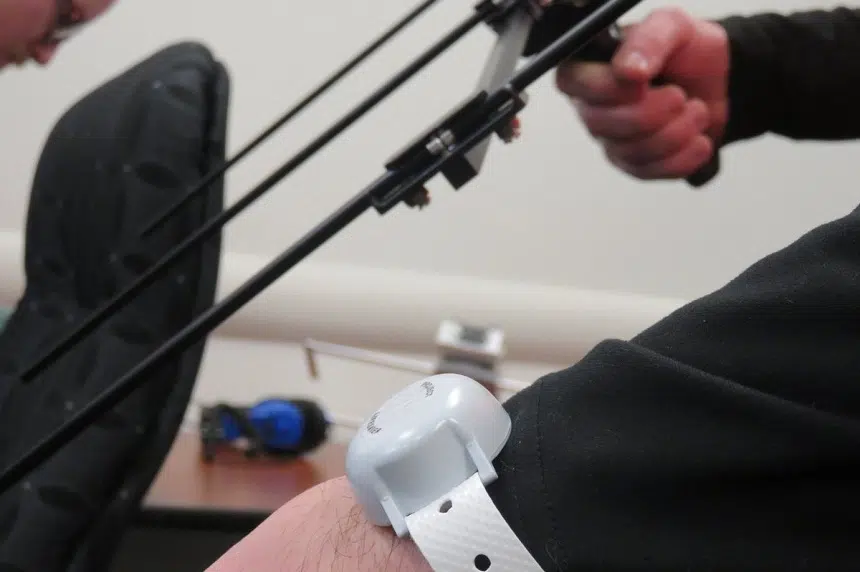Saskatoon Search and Rescue (SSR) is hoping a small piece of cutting-edge technology can help save some of the city’s most vulnerable people.
SSR unveiled Project Lifesaver Wednesday during a news conference at Saskatoon police headquarters. The program will provide radio tracking bracelets to families who worry about a loved one wandering away due to conditions like dementia or autism.
“This program will help to save more lives,” Search Manager Kent Orosz said.
The announcement comes in the wake of a pair of high-profile tragedies involving seniors in Saskatoon.
In March 2017, 89-year-old Kay Braget died after getting lost on her way home from a potluck. At the time, police reported she had shown early signs of dementia. Braget’s death sparked calls from her nephew to create an alert system for seniors who go missing.
Braget’s death came just a few months after the loss of Phillip Noonan, 88, who died in December 2016 after going missing during a walk. He too suffered from dementia.
Once attached, the Project Lifesaver bracelets can only be removed by cutting them.
Should someone wearing a Project Lifesaver bracelet go missing, a caregiver can contact Saskatoon police, who will then get in touch with SSR as needed.
Searchers can look up each bracelet’s frequency in a database, allowing them to drive to the wearer’s last known location and use a vehicle-mounted receiver to begin scanning. The vehicle-mounted receivers are good to about 400 metres. Ground crews can use handheld receivers to search up to a kilometre-and-a-half away.
Orosz said the equipment is known to reduce search times by up to 95 per cent.
“They’re averaging about 30 minutes to locate someone. Compare that to many searches our organization has been on that have been eight hours, or even days,” he said.
He added the equipment is the first of its kind to be used in Saskatchewan, but is already present in the other nine provinces. So far, the technology has been credited with saving 3,300 lives worldwide.
Saskatoon police Supt. Brian Shalovelo told reporters that along with more successful searches, the bracelets would drastically reduce the resources tied up with missing persons cases.
“We can ensure a better outcome than we probably did yesterday,” he said.
SSR currently has 20 bracelets available to families who apply for the program, which is free-of-charge thanks to contributions from SaskTel, Dakota Dunes Casino and individual donors.











